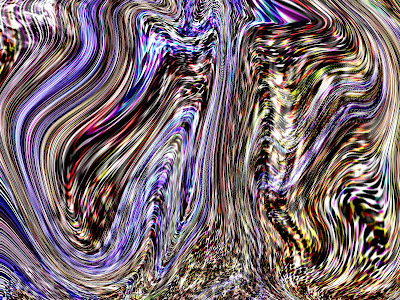Observe, observe, observe more, through your fresh eyes, inquisitive mind, enriched experience.
Things are complex, people are complex, businesses are complex, and the world is complex. Observation is one of the most important activities for people to interact with the world, understand the surroundings and improve cognitive abilities.Particularly when you observe deeper, look at a situation and wonder how on earth things could have evolved in a certain way, this is the clue that you should first seek to understand the complex problems before jumping into the scenario on how to fix them effectively.
It’s important to keep fresh eyes and try to understand what your observation is all about: Keep fresh eyes, with the beginner's mind to stay a novice of some sort, in order to observe and capture the objective information of what you are observing. At this stage, you just see what you look at on the surface, you see the altitude, the shape, the color, and capture the physical characteristics of things you observe. Then try to deal with the very things you've been observing because it will bring much more insights when you try to fiddle with it. Observations and inquiries can mutually reinforce each other if only you ask thought-provoking questions, gather adequate information, and make extensive observations in a logical way.
From a business management perspective: Observe your people, are they satisfied and fully engaged with the work? Observe your management, are they consistent with what they think, say, and do? Observe your culture - the collective mindset, is it innovative, or the opposite is true? Observe how things get done in the organization, do silos or bureaucracy block the way? Does the business management make logical sense? The business transformations of a system are located in its environment, observed from the classic developmental rates of change over time initially, identify varying directions of regular proportional change in order to understand and deal with varying issues holistically.
Observe based on different expertise and personas to gain an in-depth understanding of issues: There are quite a lot of angles to observe, and there are many ways to deepen observation. What you see depends very much on what you are familiar with and on the parading. Each one of us is unique, we have cognitive differences, different interests, expertise, or experience, At such logic level with role-based view, the answer is not about “single version of truth” because nobody can agree on what the truth looks like, it's a matter of perspective from which angle of the process you are looking from.
People play different personas in professional or personal life. From a process perspective, if you put three process observers based on their role in a room, you will hear four interpretations of how that process works, it’s all based on people’s observation and experiences. Everybody involved with the process thinks they know how it works and where the issues are, but putting independent eyes upon it almost always ends up painting a somewhat different picture. Therefore, the truth is in the eye of the beholder. On-observation, ask further: what’re the disciplines, stages, tools or frameworks to help you observe insightfully? And how to create multifaceted value when integrating all related parties’ viewpoints?
Observe objectively, holistically, what you see cognitively depends very much on your goals and on what you concentrate on given the limited amount of working memory available: Observation is the means to an end. Usually the end is about problem-solving. It is not necessary to observe irrelevant details; there is no way to absorb every bit & byte of information flowing to you, you need to be selective in order to be more informative without getting distracted or inundated with overloaded information. You have to stay focused on the issues you need to solve, otherwise, you might get stagnated, causing more issues or concerns later on.
Either observing or acting, laser focus on things that really matter, be selective on the knowledge you want to gain, Upon increasing paces of changes, the reality is that there are a lot of things that can go wrong and it is not always easy to identify what is important. Make goal-driven observation and understanding. Problem-solving is about seeing a problem and actually finding a solution to that problem, not just the band-aid approach to fix the symptom.
Observe, observe, observe more, through your fresh eyes, inquisitive mind, enriched experience. To practice deep observation, apply different tools and provide a paradigm to observe objectively by leveraging contexts and multiple viewpoints. See underneath the symptoms and dig into root causes. See around corners, understand different perspectives without pushing toward the one that you think is the truth. The goal is to clarify, deepen understanding, identify patterns and solve problems smoothly.













































0 comments:
Post a Comment